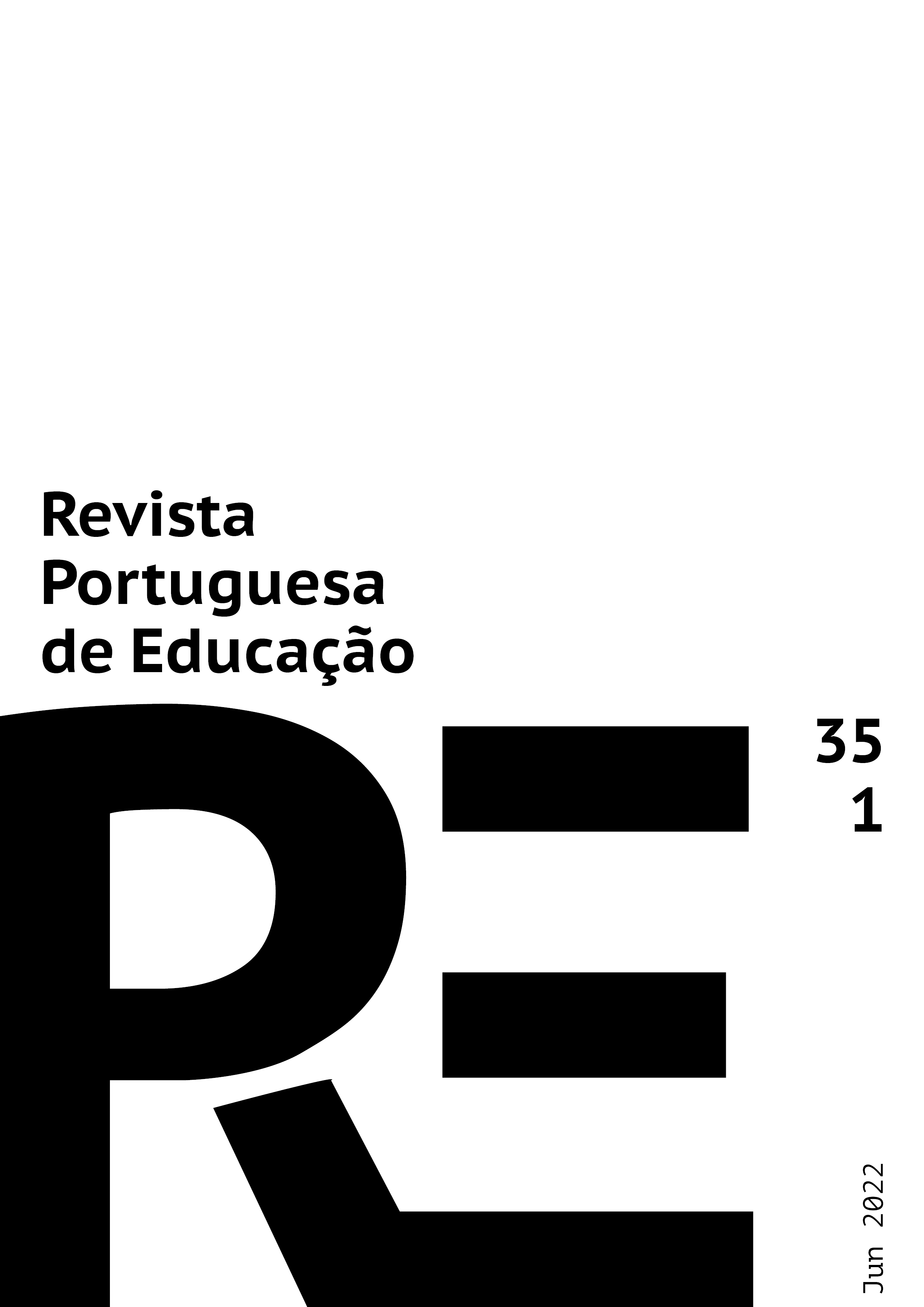Interdisciplinarity and pedagogical practices: What teachers say
DOI:
https://doi.org/10.21814/rpe.22479Keywords:
Interdisciplinarity, Pedagogical practices, Teacher training, Elementary schoolAbstract
This study aims to investigate what elementary school teachers from a school whose curriculum is organized by projects, think about interdisciplinarity and how they organize their practices. Of a qualitative nature, we used as research instruments the semi-structured interview, conducted individually with eight teachers, appointed by the school principal as a reference for an interdisciplinary work, the observation and the documentary analysis of the Political-Pedagogical Project. Data were initially processed by IRaMuTeQ software and submitted to content analysis. The results showed that: (i) interdisciplinarity is understood as the possibility of teaching that makes sense to the student; (ii) a process of constant teacher training, school reorganization and resignification of the teacher-student relationship is essencial; and (iii) the work with projects and the explicit development of autonomy levels are important elements for the implementation of interdisciplinary practices.
Downloads
References
Arroyo, M. (2011). Currículo: Território em disputa. Cortez.
Bardin, L. (2011). Análise de conteúdo. Edições 70.
Camargo, B. V., & Justo, A. M. (2013). IRAMUTEQ: Um software gratuito para análise de dados textuais. Temas em Psicologia, 21(2), 513-518.
Domingues, I. (2011). Conhecimento e interdisciplinaridade. UFMG, IEAT.
Fazenda, I. C. A. (2001). Dicionário em construção: Interdisciplinaridade. Cortez.
Fazenda, I. C. A. (2006). Interdisciplinaridade: Qual o sentido? Cortez.
Fazenda, I. C. A. (2007). Interdisciplinaridade: História, teoria e pesquisa. Cortez.
Fazenda, I. C. A. (2008). O que é interdisciplinaridade? Cortez.
Fazenda, I. C. A. (2011). Integração e interdisciplinaridade no ensino brasileiro: Efetividade ou ideologia (6.ª ed.). Loyola.
Fazenda, I. C. A. (2014). Interdisciplinaridade: Pensar, pesquisar, intervir. Cortez.
Gusdorf, G. (2003). Professores para quê? Martins Fontes.
Japiassu, H. (1976). Interdisciplinaridade e patologia do saber. Imago.
Japiassu, H. (1990). O sonho transdisciplinar: E as razões da filosofia. Imago.
José, M. A. M. (2011). De ator a autor do processo educativo: Uma investigação interdisciplinar [Tese de doutoramento, Pontifícia Universidade Católica de São Paulo]. Repositório PUCSP. https://tede2.pucsp.br/bitstream/handle/9559/1/Mariana%20Aranha%20Moreira%20Jose.pdf
Lenoir, Y. (2005). Três interpretações da perspectiva interdisciplinar em educação em função de três tradições culturais distintas. Revista E-Curriculum, 1(1), 1-25.
Minayo, M. C. S., Assis, S. G., & Souza, E. R. (2005). Avaliação por triangulação de método: Abordagem de programas sociais. Editora Fiocruz.
Moreira, A. F. B., & Silva, T. T. (1995). Sociologia e teorias críticas de currículo: Uma introdução. In A. F. B. Moreira & T. T. Silva (Eds.), Currículo, cultura e sociedade (pp. 7-37). Cortez.
Morin, E. (2011). Os sete saberes necessários à educação do futuro. Cortez.
Pasquier, F., & Nicolescu, B. (2019). To be or not to be transdisciplinary, that is the new question. So, how to be transdisciplinary? Transdisciplinary Journal of Engineering & Science, 10(1), 1-8.
Pombo, O. (2008). Epistemologia da interdisciplinaridade. Ideação - Revista do Centro de Educação e Letras da Unioeste, 10(1), 9-40.
Sacristán, G. (2000). O currículo: Uma reflexão sobre a prática. ArtMed.
Salvador, C. M. (2006). Interdisciplinaridade no ensino superior. In I. C. A. Fazenda (Ed.), Interdisciplinaridade na formação de professores: Da teoria à prática (pp. 113-124). Ulbra.
Santos, B. S. (1996). Um discurso sobre as ciências. Cortez.
Sommerman, A. (2006). Inter ou transdisciplinaridade: Da fragmentação disciplinar ao novo diálogo entre os saberes. Paulus.
Souza, M. A., Bussolotti, J. M., Cunha, V. M. P., & Fazenda, I. C. A. (2020). Currículo e interdisciplinaridade: Oque dizem os estudantes de um mestrado profissional em educação. Imagens da Educação, 10(2), 104-124. http://doi.org/10.4025/imagenseduc.v10i2.51219
Downloads
Published
How to Cite
Issue
Section
License
Copyright (c) 2022 Portuguese Journal of Education

This work is licensed under a Creative Commons Attribution-ShareAlike 4.0 International License.
1. The authors preserve their authorship and grant the Portuguese Journal of Education the right to the first publication. The work is licensed under Creative Commons Attribution License that allows sharing the work with the acknowledgment of initial authorship and publication in this Journal.
2. The authors have the right to take additional contracts separately, for non-exclusive distribution of the published version of their work (e.g. to deposit in an institutional repository or as a book chapter), acknowledging the initial authorship and publication in this Journal.
3. The authors have the permission and are stimulated to post their work online (e.g. in an institutional repository or on their personal website). They can do this at any phase of the editorial process, as it may generate productive changes, as well as increase impact and article citation (see The Open Citation Project).
The work is licensed under Attribution-ShareAlike 4.0 International (CC BY-SA 4.0)




















